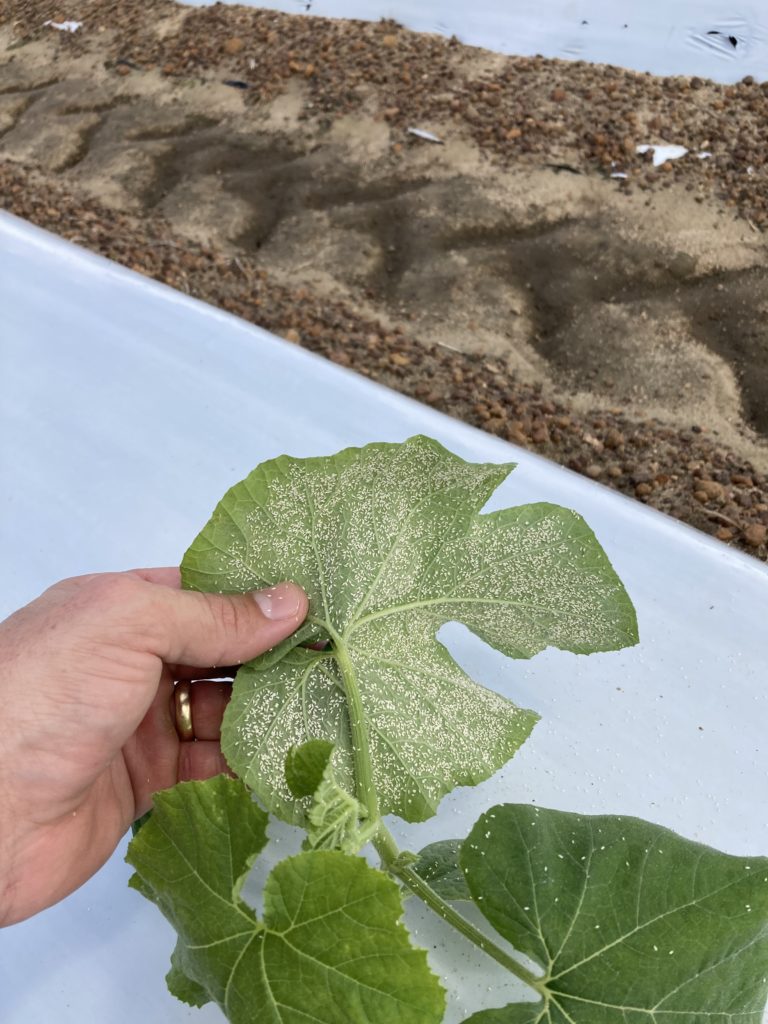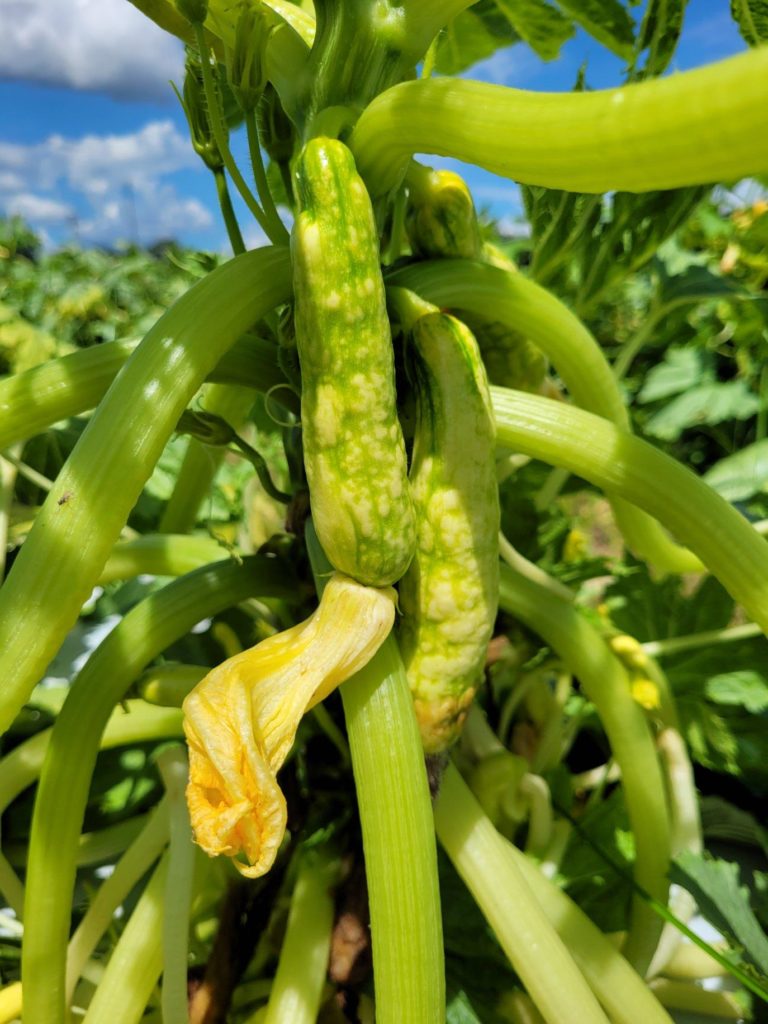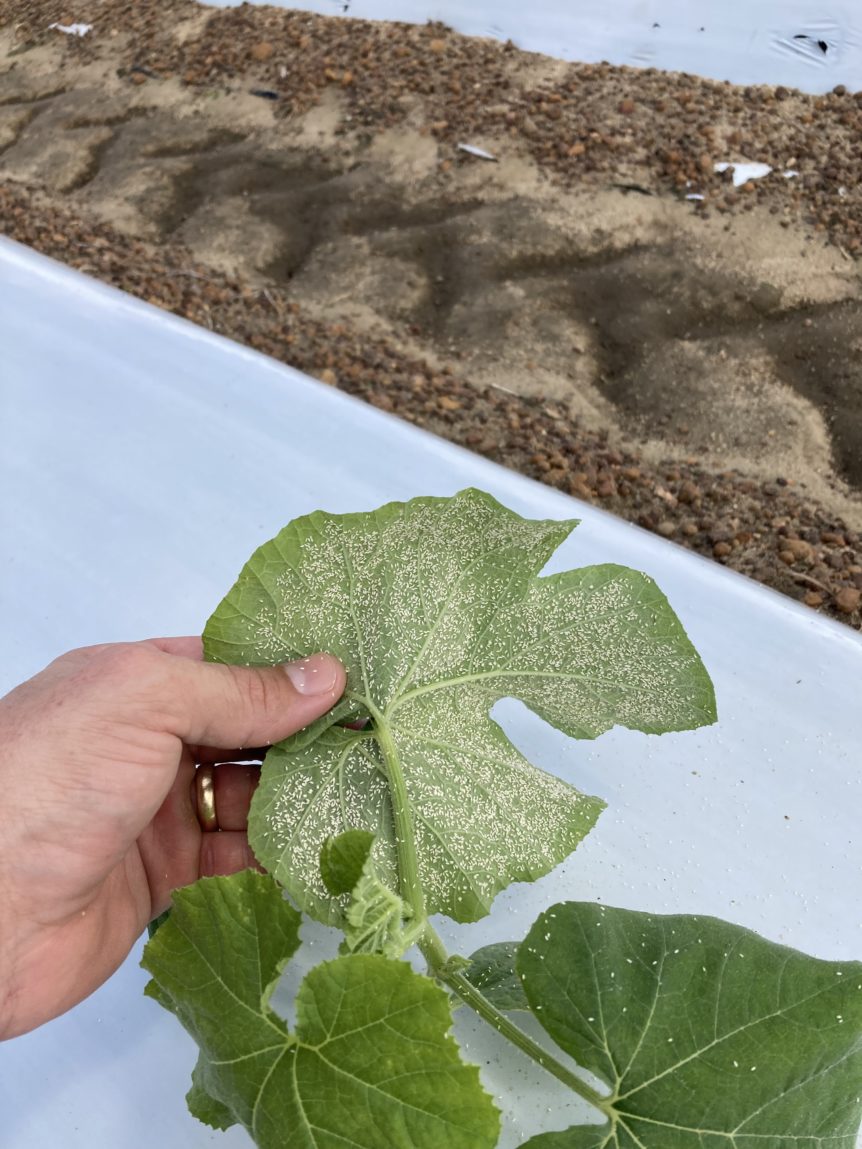
By Clint Thompson
Whiteflies are almost a guarantee for South Georgia vegetable producers in the fall. Growers need protection against whitefly-transmitted viruses which can devastate cucurbits.
Ted McAvoy, University of Georgia (UGA) Extension vegetable specialist, is researching multiple cucurbit crops to see which ones are more tolerant of the different viruses that frequently accompany whitefly pressure.
“Since about 2017, we’ve had horrible problems with whitefly-transmitted viruses in the fall. My particular (research) trials are to manage the virus using different crops, different cucurbit varieties. There’s no known resistance, but some crops and some varieties are more tolerant to the varieties,” McAvoy said. “What we have found is that for summer squash, zucchini in general, it is more tolerant to whitefly-transmitted virus than yellow squash. But then there’s differences between varieties, like within zucchini, Renegade seems to be the top performer.”
Whitefly Background

Whiteflies are responsible for transmitting multiple viruses, including cucurbit leaf crumple virus and cucurbit yellow stunting disorder virus. According to University of Georgia crop loss estimates for fall 2017, these viruses caused between 30% and 50% crop loss in squash and cucumbers and nearly 80% crop loss in snap beans that year.
McAvoy’s research the last two years has centered on the tolerance level of crops like zucchini, cucumber, yellow squash, winter squash, watermelon and pumpkin. He has tested crops for virus incidence, virus severity and yields.
Trial Results
Pumpkins and watermelons have predictably failed. Cucumber does not get crumple leaf virus, just yellowing viruses, with Bristol being the best variety. Lioness is most productive for yellow squash, while spineless zucchini is also susceptible.
Whitefly pressure was not significant last year, though that could just be an outlier. Depending on how cold the winters are, impact from the whitefly infestations can be felt the following year.
“Whitefly pressure wasn’t severe last year as it has been. Two years, we had it pretty much in the field in August. Plants that were in the field for two or three weeks were still young and small, got virus and never recovered,” McAvoy said. “This year we didn’t get virus really until the end of September. Our early fruiting crops like zucchini, yellow squash and cucumber, we were already harvesting before the plants got virus. We got virus but it came in late, and it really didn’t hurt our yields as much as if it had jumped on early on small plants.”
But there is no guarantee whiteflies won’t return with a vengeance this upcoming season. McAvoy is one part of a management team that is focused on controlling the insect’s impact long term.
“I think the ultimate long-term solution would be breeding for varieties, identifying resistance and incorporating them into new varieties. But that’s a long-term process,” McAvoy said. “I think for what we have now, we’re doing a multi-prong approach where entomologists are looking at the best insecticides to control whiteflies; exclusion nets; reflective mulches. Me in horticulture, I’m looking at resistant varieties. I think everything combined will greatly reduce the severity of these viruses.”










